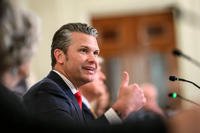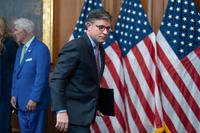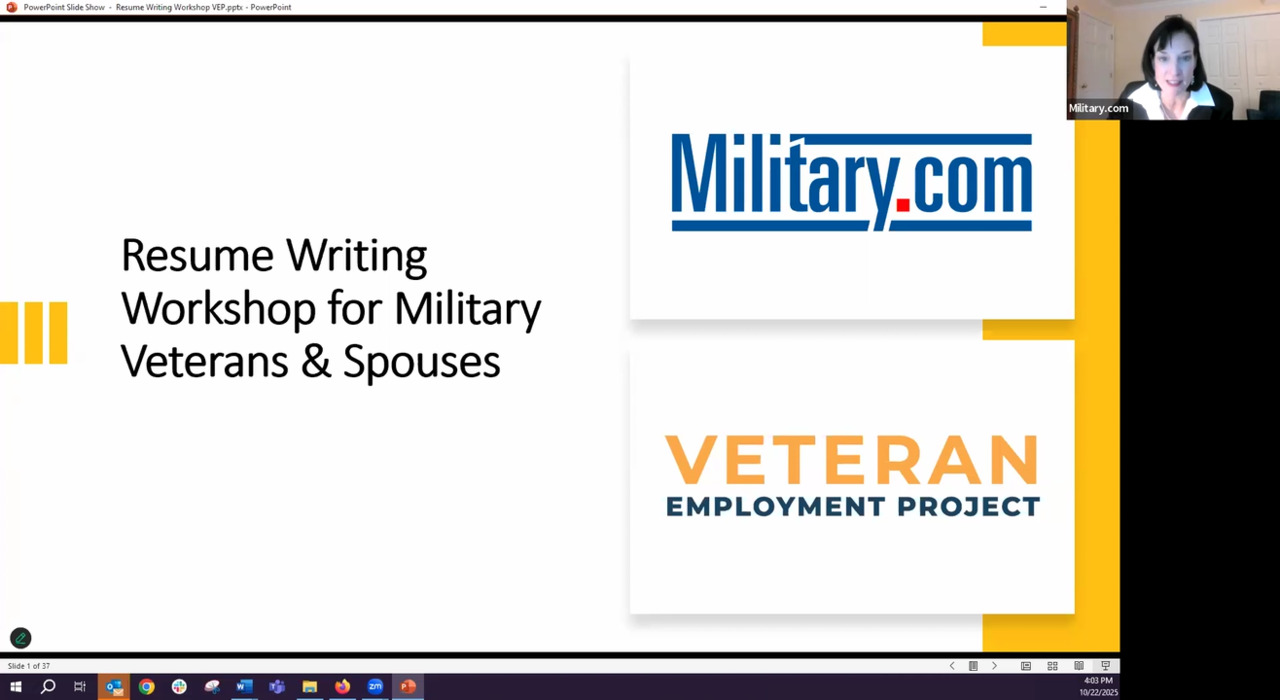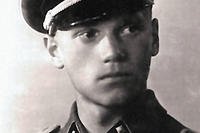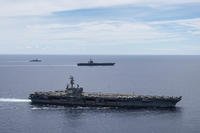Army Gen. Joseph Votel, who has been nominated to take command of U.S. Central Command, told lawmakers Wednesday that he did not support establishing a no-fly zone to protect Syrian refugees.
Votel, the outgoing commander of U.S. Special Operations Command, testified at a March 9 confirmation hearing before the Senate Armed Services Committee. Army Lt. Gen. Raymond Thomas also testified at the hearing for his nomination to become the next commander of SOCOM.
Sen. John McCain, a Republican from Arizona and chairman of the committee, asked Votel if he supported using U.S. air power to protect Syrian refugees fleeing from their war-torn country.
"Do you believe that perhaps we should have a no-fly zone in order for refugees to have some place to go besides going to Europe where basically they are being shut out now as we speak?" the senator asked.
McCain has been a long-time advocate of establishing a no-fly zone over parts of Syria.
Votel, who asked for a chance to explain, said, "Mr. Chairman, reluctantly my answer is no. First of all, I share in your concern and the committee's concern on the humanitarian disaster that is in place.
"That said, as I have looked at what the potential options are, I have to do a more complete look at the assessment of those to ensure that they will achieve the end states that we truly desire and if confirmed I commit to do that."
McCain asked, "What is your problem with a no-fly zone?"
"Mr. Chairman, I don't have a problem with a no-fly zone," Votel said.
McCain continued, "You think things have been going well for the last four years, especially as far as refugees are concerned?"
Votel said, "No Mr. Chairman, I don't think it has been going well."
McCain said, "So don't you think it might be an idea to think about a place where these refugees besides stacking up in places like Greece and others. Don't you think it might be nice sometime to say to a Syrian, ‘You can go someplace and not be barrel-bombed?'"
Votel said, "I do Mr. Chairman."
"And do you think the United States of America has the capability to set up and enforce a no-fly zone?" McCain asked.
"I do believe we have the capability to do that," Votel said.
McCain asked no more questions about the endeavor and Votel did not change his original answer of not supporting a no-fly zone. The senator made it a point to say in his opening statement that "our nation is in dire need candid strategic leadership.
"We need you to have the courage to speak truth to power, and to ask for the resources and the authorities you need, not just those you think the administration would allow. You owe that to this committee," McCain said.
Several lawmakers asked Votel if he supported reevaluating the plan to cut U.S. forces in Afghanistan from 9,800 to 5,500 by Jan. 1 given the increased Taliban activity.
Votel agreed that such a reassessment was necessary and that he supported a "conditions-based withdrawal" strategy.
Lawmakers have recently expressed concern that significant numbers of militants affiliated with the Islamic State of Iraq and Syria, or ISIS, have spread into North African countries such as Libya.
McCain asked Thomas if he supported sending special operations forces into these areas.
"It seems to me that this argues for more Special Forces presence on the ground, especially in a country like Libya," the senator said.
Thomas agreed.
"Mr. Chairman, I agree with your assessment there that that particular part of ungoverned space requires potentially unique special-operations solutions and we are attempting to provide those options to the chain of command," Thomas said.
McCain asked how Special Forces would be used in such an operation.
"Mr. Chairman, I think ultimately we don't succeed unless there is some reformation of the government there," Thomas said.
"It is absolutely ungoverned at the time, although there is considerable progress in terms of diplomatic initiatives, so I think that the primary role … from our special operations approach would be to identify the organizations that we can work with that may provide the security apparatus that would be affiliated with the future government of Libya."
"But there are organized groups that you could have operations with in Libya?" McCain asked.
"Yes Chairman. We have already identified some formative organizations that we hope to be able to work with in the future," Thomas said.
Committee members appeared very supportive of both nominations, but there was no discussion of when the committee might vote to confirm Votel and Thomas into their new posts.
-- Matthew Cox can be reached at matthew.cox@military.com.



